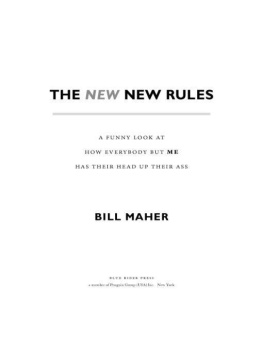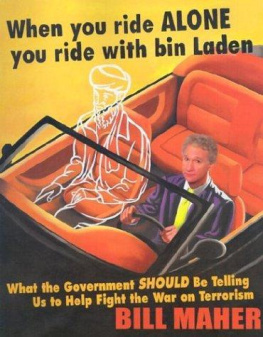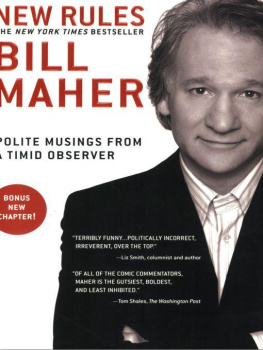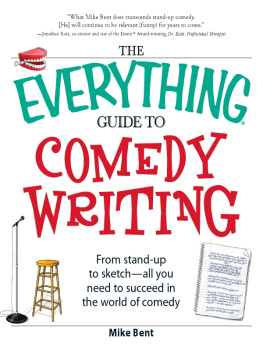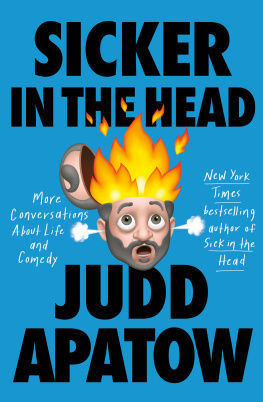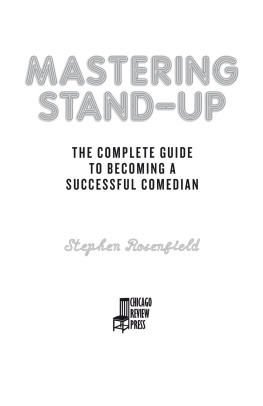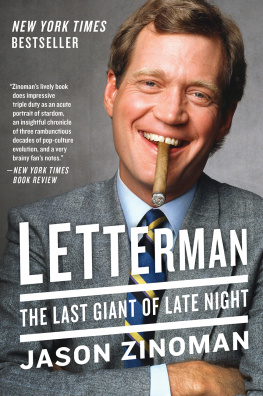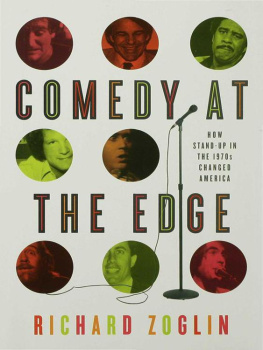
Also by Bill Maher:
Does Anybody Have a Problem with That?: Politically Incorrects Greatest Hits
When You Ride Alone You Ride with bin Laden: What the Government Should Be Telling Us to Help Fight the War on Terrorism
Keep the Statue of Liberty Closed: The New Rules
New Rules: Polite Musings of a Timid Observer
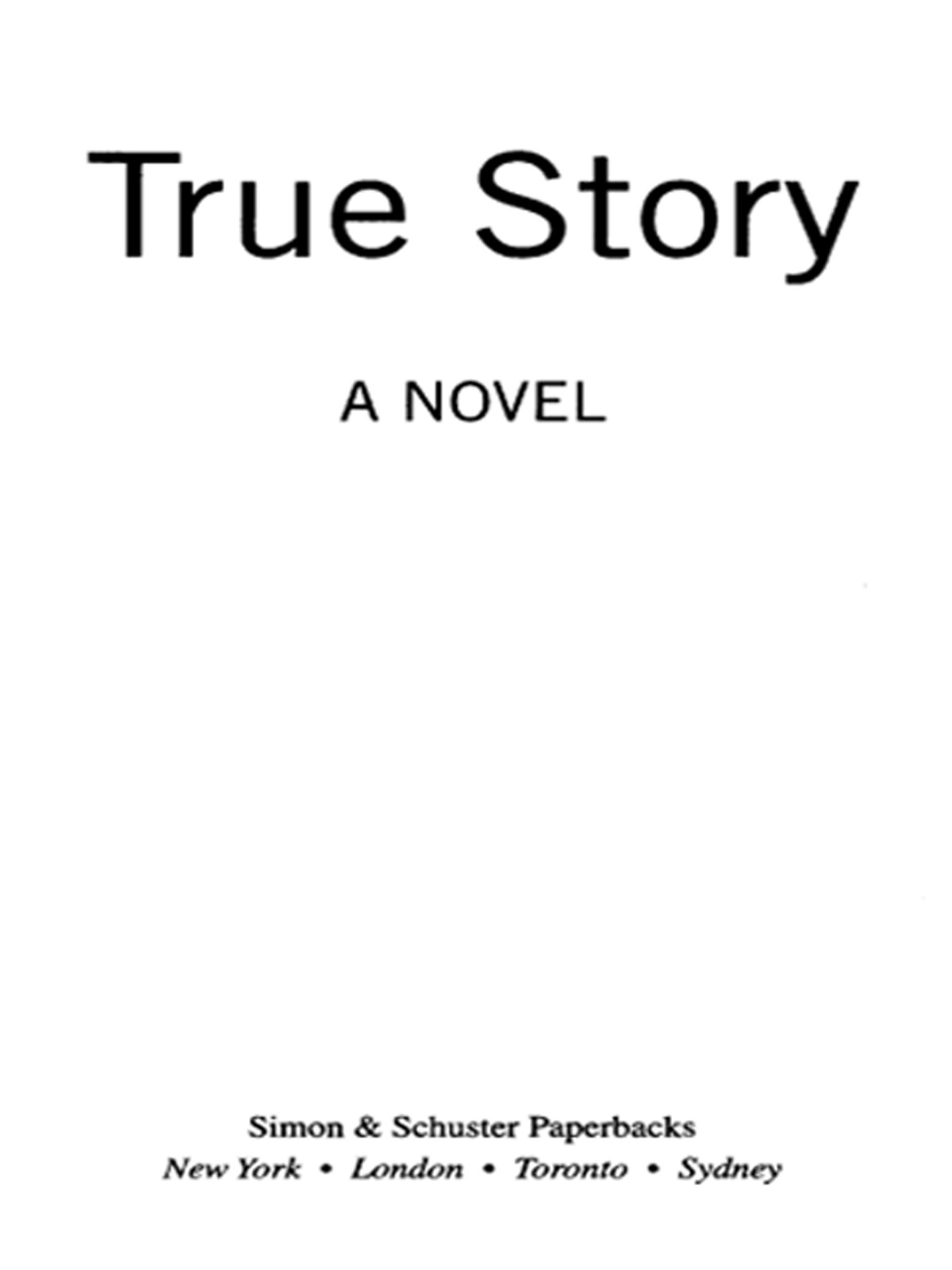

SIMON & SCHUSTER PAPERBACKS
Rockefeller Center
1230 Avenue of the Americas
New York, NY 10020
www.simonandschuster.com
This book is a work of fiction. Names, characters, places, and incidents either are products of the authors imagination or are used fictitiously. Any resemblance to actual events or locales or persons, living or dead, is entirely coincidental.
Copyright 1994 by Bill Maher
Foreword copyright 2000 by Bill Maher
All rights reserved, including the right of reproduction in whole or in part in any form.
First Simon & Schuster paperback edition 2005
SIMON & SCHUSTER PAPERBACKS and colophon are registered trademarks of Simon & Schuster, Inc.
For information about special discounts for bulk purchases, please contact Simon & Schuster Special Sales: 1-800-456-6798 or business@simonandschuster.com.
Designed by Deirdre C. Amthor
Manufactured in the United States of America
10 9 8 7 6 5 4 3 2
The Library of Congress has cataloged the hardcover edition as follows:
Maher, Bill.
True story : a novel / Bill Maher.
p. cm.
1. ComediansFiction. I. Title
PS3563.A356 T78 2000
813.54dc21 00-025217
ISBN-13: 978-0-684-87360-2
ISBN-10: 0-684-87360-5
ISBN-13: 978-0-7432-9135-4 (Pbk)
eISBN-13: 978-0-7432-9341-9
ISBN-10: 0-7432-9135-2 (Pbk)
To my friends in comedy. The good parts are all you.
They loved each other because they shared a dream but they hated each other because there wasnt enough of it to go around.
Contents
True Story
Foreword
True Story is a book I wrote in 1991-92 that has confused a lot of people. It was a book by a comedian, and comedians generally put out mass-market, near-the-cash-register, big-print-on-not-too-many-pages, read-it-in-one-sitting books. So True Storythat wasnt like you know, a real book, was it?
Yes, in some ways, its amazingly like a real book. You cant read it in an hour. And if you could, and did, youd be stupid. Youd miss a lot of good jokes.
The provenance of True Storywhich is the phrase a comedian uses before he begins a liewas around 1983 when I became frustrated with having ideas and jokes that just could not be shoehorned into the stand-up form, which is by nature restrictive to needing outright laughter every fifteen seconds. But some good ideas dont fit there.
So I had to write a book.
What would it be about? Well, that was a no-brainer, and this was before people said no-brainer. The conventional wisdom is write what you knowand this is especially good advice for people who are not really novelists but have one good story in them.
Thats me. I wanted to see if I could explain the life of the comedian, which, to my and most comedians eyes, had not yet been done properly. Peoples assumptions about the life of the comedian were, I found, so off, so wrong that I wanted to correct it on record, just because Im nuts that way.
So for ten years, mostly the eighties, I salted away thoughts, anecdotes, plot lines, dialogueall the ingredients I would need to write this thing. While in Mexico during December 1985, making a horrendous TV movie called Club Med, I did some of the writing, but most of it was compiled in 1991 and 1992. Those two years, and the years 1979 and 1980 define this book: one, when I was living the story, the other when I was home re-creating it on paper.
And I do mean home. This book got done in the early nineties because I had nothing else to do, because no one was banging on my door for much of anything. I was through with acting/sitcoms, but it was before Politically Incorrect. I was getting into my thirties and getting worried. Writing a novel was probably the least wise choice to make at a moment when some sort of commercial splash was needed.
On April 30, 1992, I printed out the first draft, a day earlier than I had wanted, but the L.A. riots had begun and now seemed to be heading right for my house. I was sitting home watching the city burn and rooting for the printer not to break down as it clanked and chugged through four hundred pages. But it made it, and with minor changes, this is the book that came out that Riot Day, and it remains the only work of any kind in my life that now, seven years down the road, I dont want to distance myself from at all.
Which brings me to this: I could never write a book like this again. I am not a novelist by trade, and I have the greatest admiration for those who really do this, because its a long haul, its lonely, it can be tedious, and the end isnt always in sight. I know I wouldnt put myself through it again. Just writing this short foreword was difficult for me, and the writing in it is not nearly as good as the writing in the book. After 92, I left a piece of me on the field as far as what it takes to get yourself to hunker down and keep polishing a product so that every chapter, every paragraph, every sentence is finally exactly right. But I had enough energy, angst, depression, and frustration in 1991-92 to do it one time. I really hope you enjoy it.
DECEMBER 1999
The Act Youre Not Good Enough to See
Five comedians sat on a train. They were Dick, Shit, Fat, Chink, and Buick, so pseudonymed for their specialities de fare: Dick, who did dick jokes; Shit, who did shit jokes; Fat, who did fat jokes; Chink, who made fun of the way Oriental people spoke; and Buick, the observationalist, whom everyone called Buck, and so he came to be called Buck.
Hey, get down off there! ejaculated the conductor, and the giggling colleagues dismounted and took their rightful places inside the gleaming trispangled Amtrak Minuteman, bound for Trenton, Philadelphia, Wilmington, Baltimore, and Washington, D.C., towns where comedy was king and the audience peasants.
Near the back of the train, the comedians found a suitable enclave where three could face two and sprawled inside it. Fat took up two seats alongside his mentor, Dick, while the Damon and Pythias of comedy, Shit and Buck, sandwiched their protg, Chink, on the opposing bench. The boys were dressed in the casual attire of the day: sneakers, Sasson jeans, sweatshirts, button-downs, and almost-leather jackets or blue hooded parkas. Except for Buck, who enjoyed the distinction of always dressing in a sports jacket and tie. They could have passed for any other five young white men who were completely out of their minds.
After the train pulled out of Penn Station, Shit got up to use the bathroom and then returned to his seat completely naked. The other boys laughed at the sight of him, although certainly not as hard as they would have laughed if it was the first time theyd seen him do such a thing. It was the first time for the other passengers, howeverbut since they were New Yorkers, they probably had seen naked people in public before, probably that day. What they didnt know was that Shit and his friends were not actually dangerous, just comediansyoung comedians at thatand playing was simply their day job.
Next page

